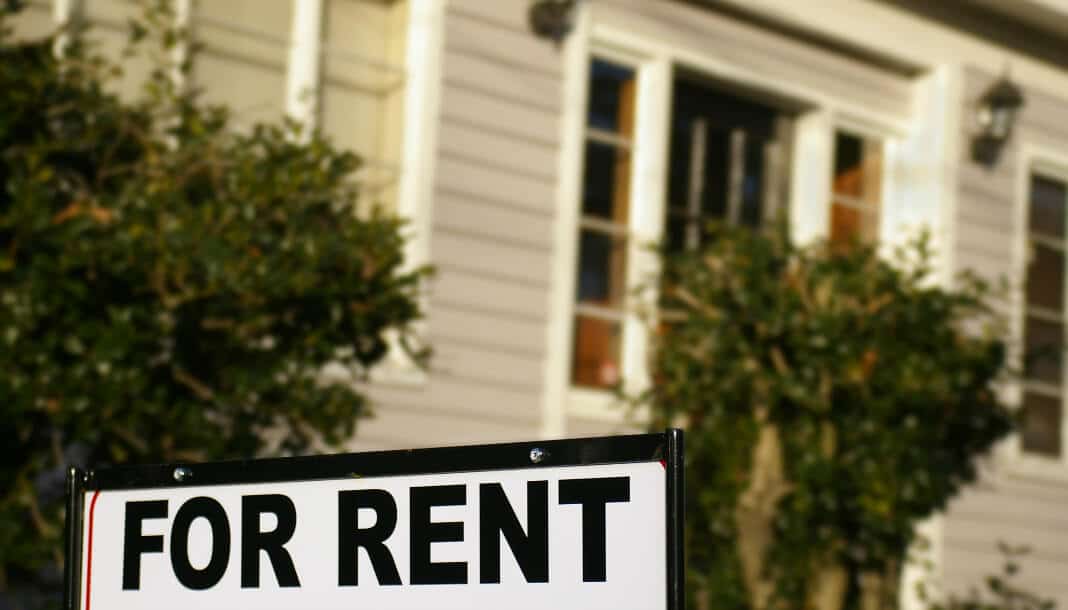Speak to a Landlord Tenant Lawyer
Answer the following questions to schedule a free consultation
Answer the following questions to schedule a free consultation
To get started, give us a call during normal business hours and share some basic details about your case.
We’ll listen to your story, understand your goals, and create a legal strategy that aligns with your needs.
Receive top-quality legal representation. We’ll continue fighting until we get you the outcome you deserve.

Leasing can be great option for both the landlord and tenant. For tenants, it serves as an easy way to find housing quickly and affordably. For landlords, it offers an additional stream of revenue. Unfortunately, many issues can arise during this type of agreement. Disputes can take many forms, from the tenant not paying rent to the landlord failing to maintain the property. Whether you’re a landlord seeking eviction or a tenant trying to protect your rights, an experienced lawyer can help. Their services include drafting documents, reviewing contracts, as well as pursuing and defending legal action.
A rental agreement is an agreement between a property owner and borrower that allows the borrower to use the owner’s real estate, building or other asset. This agreement details how much the borrower or tenant pays, when the landlord can evict, prohibited actions and other rights and duties. Here are some common types of rental agreements:
Real estate tenancies are commonly classified based on the term — and the length decides when and how the landlord can remove the tenant. In a fixed term leasing agreement, the end date is specified. Typical term leases run for six months or one year.

Month-to-month tenancies do not contain specific time limits. In this type of agreement, tenants get advance notice of either an increase in rates or deciding to end the landlord-tenant relationship altogether. By contrast, landlords in fixed term leases do not have to give a separate termination notice because it is contained within the lease.

Not all month-to-month rental agreements come in writing. In tenancies-at-will, a renter occupies the premises under a verbal agreement and makes monthly payments until landlord or tenant decides to end the agreement, which can happen at any time and without warning.

The eviction process starts with a lawsuit. During this type of litigation, the owner alleges that the renter has remained after the right to occupy ends. Here are some of the more common reasons for an eviction:
When a tenant stays past the end of the term, the property owner has a legal right to evict them. For fixed term leasing agreements, this happens after the end date in the contract. For month-to-month arrangements, it’s when the next month starts, unless the owner accept payments or fails to give the required notice before the month ends.

Your right to be a lessee of real property can come to an end if you fail to pay. This goes without saying, as landlord tenant law draws from contract law.

A transgression of a lease agreement does not automatically constitute grounds for an eviction. Breaches such as failing to keep the property clean and in good condition and violating other rules can be reasons not to enforce the contract. Other valid defenses include the landlord accepting payment from you after the tenancy came to an end, or that the landlord was late in giving you an eviction notice. Having an experienced landlord tenant attorney who specializes in drafting and reviewing contracts can be incredibly helpful in these types of situations.

If you file the lawsuit to evict, you must appear before a judge and prove one of the reasons for declaring that the tenant no longer has a right to occupy the place. Should you find yourself as the defendant, be aware that the condition of the property or that the landlord may be a “slumlord” does not necessarily give you a reason to ignore your payment obligations. However, if the premises are not habitable, you can ask the court for an abatement, or a refund, of your monthly payments to the extent that you paid more than the fair rental value. A real estate expert who specializes in the local leasing market may have to give the court an opinion of the fair value.

When the landlord obtains an eviction order, a sheriff (or deputy) will dispossess the tenant and place possession in the landlord. In most jurisdictions, the lessee has a certain period of time to remove items and, after that date, the landlord can place them in storage. A tenant who appeals an eviction, either to a higher trial court or appellate court, may have to pay the monthly amount in order to stop the eviction until the appeal is resolved.

Disputes between landlords and tenants can take many different forms. Here are some other issues that frequently lead to litigation:
Some landlord-tenant litigation cases arise from disputes over the security deposit. When the landlord-tenant relationship begins, the occupant will usually be required to place a sum of money with the landlord. This security deposit can be applied to reimburse the landlord for any damages caused by the wrongful or careless behavior of the tenant or for missed payments or other fees and charges. If you believe the landlord has wrongfully kept your deposit, you can try to get it returned through legal action.

As already mentioned previously, residential tenants may have a valid claim that the unit was uninhabitable because of conditions like lack of plumbing, heating, air conditioning or running water. If you are a tenant in such a situation, you do not have to await an eviction to raise your claims. You may sue the landlord in an original lawsuit for abatement and other damages.
Landlords or “slumlords” who fail to provide a safe premises may face negligence lawsuits from either the tenants or their guests. If you’re a landlord, especially if you’re not experienced in this area, it may be best hire a property management specialist or home improvement expert to recommend ways to avoid these types of problems.

With an experienced real estate lawyer who reviews agreements and whether you have good and legal leasing practices, you might be able to avoid issues of violating fair housing laws. In particular, many landlords may find themselves with claims against them for enforcing “no pets” policies. Although the landlord may believe that pets can cause sanitation problems and damages, tenants with disabilities such as visual impairment have a right under federal disability and fair housing laws to keep dogs as service animals. Emotional support animals are the entitlement of those tenants who have a need for them as therapy for a mental or emotional condition.

Landlords may face potential problems due to discrimination and other wrongful conduct during the application process or within advertisements. For instance, the use of certain words that indicate a preference based on race, religion, gender or disability status can create potential liability for the landlord. While they cannot discriminate based on credit score, landlords must ask for written permission to run a credit check on potential tenant. If this information was pulled without the tenant’s consent, they have a cause for a complaint.

Finding a law firm that specializes in landlord tenant disputes can be challenging, as there are a number of questions that need to be answered before making any hiring decisions. Are their legal services recommended by previous clients? Do they have good ratings and positive reviews online? How much will their services cost? Here are some tips on finding the right lawyer for you:
If you can, choose a landlord tenant lawyer who is local to the area where the rental unit exists. Because most landlord tenant disputes must be brought in the county or municipality where the rental unit is situated, hiring a professional who is local to that area is likely to help make the pursuit of these types of claims more affordable, especially if it goes to trial.

When trying to find a top rated law firm near you, pay attention to online reviews, ratings and whether they’re recommended by previous clients. Examine the law firm’s website to read about the types of cases or clients they represent.

Most attorneys will provide a free consultation to discuss your matter. During the consultation, ask the lawyer questions such as whether the firm takes these cases on hourly rates or flat fees. When you meet with the lawyer, have with you all of your relevant documents, including the agreement, inspection reports, the eviction notice and any complaints filed with civil rights or human relations boards.

For commercial tenancies, larger sums of money may hang in the balance and the results of a lengthy legal battle may hinge on the interpretation of written agreements. If you are renting out a commercial building or office space, you not only have the leasing fee that your tenant is not paying, but there is the loss of the ability to get another occupant. Depending on the value of the space, this can cost several thousands of dollars. In these situations, especially where the eviction is contested, hiring an experienced landlord-tenant attorney to represent you in trial will likely pay dividends.
